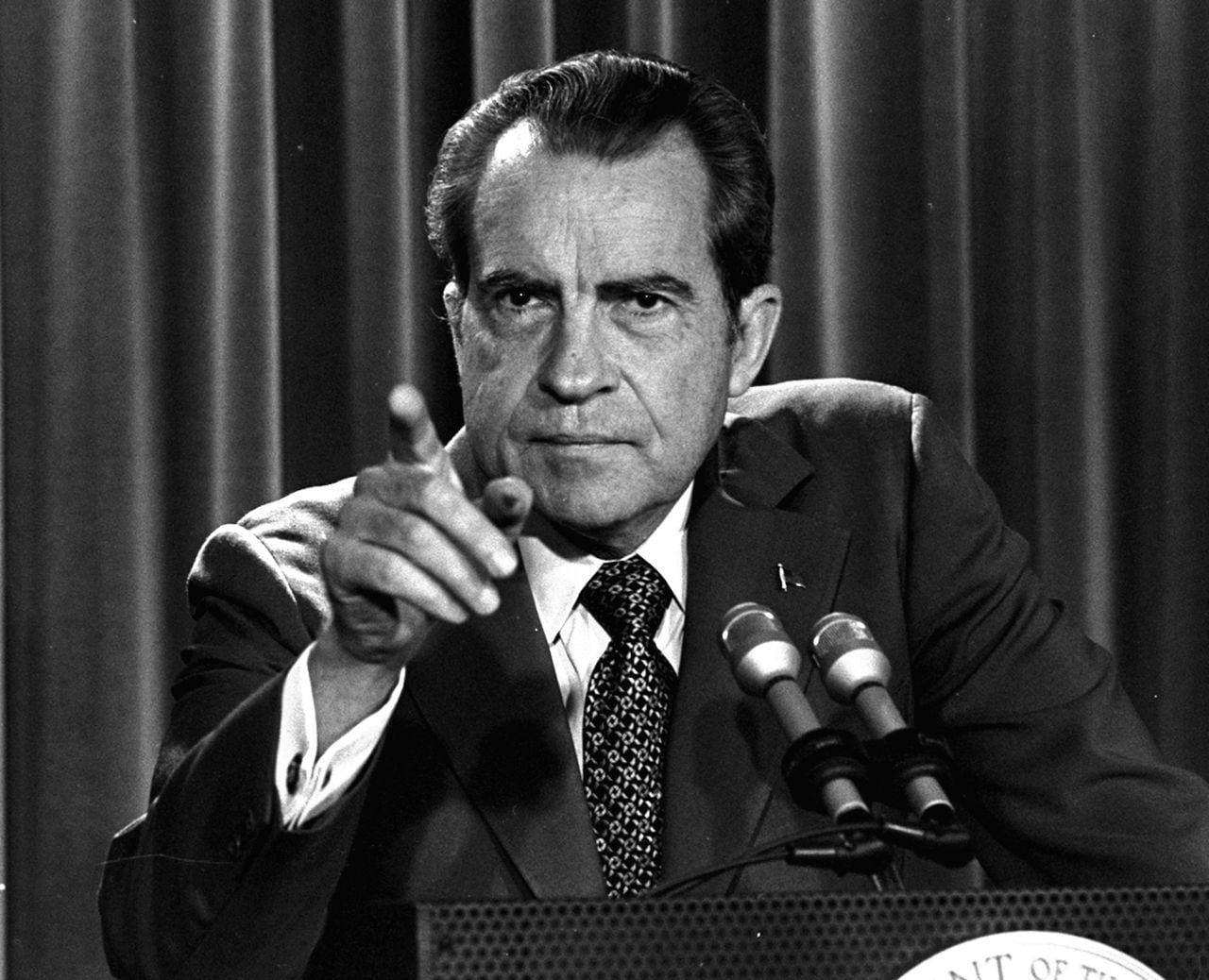The Post is right: Democracy dies in darkness, and itâs now in peril
It is emblematic of the times: The Washington Post announced more employee buyouts and less coverage near the darkest day of the year.
Dec. 21 is the shortest day of winter, followed six months later by the longest day of summer. Unfortunately, truth, solid information and absence of downright lies are much rarer and less dependable than astronomy.
The paper’s motto, “Democracy Dies in Darkness,” seems now like a bitter prophecy rather than a defiant statement of truth.
The Washington Post — and its star reporters and editors — was the organization that exposed the lies and deceit of the Nixon White House. Nixon and his staff attempted to use the power of the presidency to thwart the electoral process. Later, they attempted to cover up their crimes.
Nixon resigned in 1974, after which his successor, a decent guy named Gerald Ford, said: “My fellow Americans, our long national nightmare is over.”
Ford, Nixon and most of the others are dead now. They would never have believed that barely 50 years later, our national nightmare would be in full swing — and would threaten to destroy the political system that has been the envy of the world.
Our Constitution says that if you attempt to overthrow the government, then you can’t come back and try to be part of it. This amendment — crafted to keep former Confederates out of office — is plain in its meaning.
To strict constructionists of the Constitution, it means just what it says.
The problem is, the darkness that the Post warns against has produced an electorate that seems to not care about the truth and will believe a lie no matter how outrageous.
The respect that journalists enjoyed in the mid-1970s has collapsed into a freak show of talking heads shouting at one another. It didn’t start with Rush Limbaugh touting his vitriolic echo chamber of a radio program as “Excellence in Broadcasting,” but he’s a good example of what happens when you tell people what they want to hear and call it truth.
“Dittos, Rush!” was his listeners’ cry. They were so non-critical in their thinking that it apparently didn’t occur to them that Rush was simply feeding them what they wanted to believe. They listened, convinced themselves they had discovered a fount of wisdom, and made Rush a millionaire in the process.
Here are some examples of non-critical thinking:
Lots of folks believe the U.S. economy is in shambles. It is not.
“Stop the steal” is truth to millions, even though it has been proven there was no “steal.”
What passes for political leadership in my state, and many others, panders to a group who attempted to overthrow the government in a violent insurrection.
What oath did they take? And how can these God-fearing, self-professed Christians ignore it so readily?
They can’t see the truth because they don’t want to.
One of the things that everyone should agree on is this: You can’t see in the dark. And when darkness keeps us from grasping the truth, then we fall to the universal human urge to understand and make up our own truth.
It’s a dangerous thing — one that’s responsible for terrors from the Spanish Inquisition to the Holocaust and every political horror that one group has visited on another through history.
Ask yourself: If you could replace our democracy with some other system, what would you choose? There are lots out there. You could have a king. After all, God said the king should be in charge, so to defy the king was to defy God and thus be dammed to hell. Or something like that.
How about a regular old dictator? In South America during the reign of Augusto Pinochet in Chile, groups of right-wing thugs suppressed opposition to the government by simply killing anyone who protested. These rightly named “death squads” murdered thousands of people — mostly young people — who had the temerity to criticize Pinochet.
Is history your thing? How about the glory of Rome? There, violent death was the solution to a lot of problems. It was a common way of changing leadership. One emperor was killed by the followers of the next emperor. It was bloody, untidy and a regular feature of the civilization that gave us the idea of a republic.
Winston Churchill did say that “democracy is the worst form of government, except for all those other forms that have been tried from time to time.” The quote isn’t original with him, but it’s a plain statement from a man whose historical predecessors in government were soaked in blood and violence.
Will we pick up the burden of self-government and preserve that best/worst system of government? Or will we turn back to the historical norm?
Death, fear, lies and terror have been the norm for most of history.
Are we entering a new dark age? Possibly — and we will live in darkness if we refuse to open our eyes and see the light.
Frances Coleman is a former editorial page editor of the Mobile Press-Register. Email her at [email protected] and “like” her on Facebook at www.facebook.com/prfrances.
